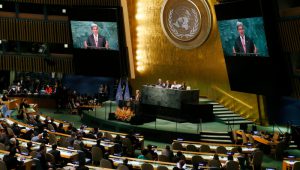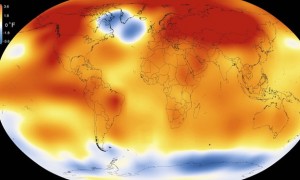
How we have prioritized as’ artificial’ as ‘improved’ or superior hearkens back to nothing so much as the advent of sugar substitutes. As we have come to understand artificial sweeteners, so should we think about, as in consider, so-called A.I. The emphasis on artificial has us reeling but in its best light it seems inadvertent – innocently derived from ‘simulated’ – and, whatever the case may be, is not new:
In our time, political speech and writing are largely the defence of the indefensible. Things like the continuance of British rule in India, the Russian purges and deportations, the dropping of the atom bombs on Japan, can indeed be defended, but only by arguments which are too brutal for most people to face, and which do not square with the professed aims of political parties. Thus political language has to consist largely of euphemism, question-begging and sheer cloudy vagueness. Defenceless villages are bombarded from the air, the inhabitants driven out into the countryside, the cattle machine-gunned, the huts set on fire with incendiary bullets: this is called pacification. Millions of peasants are robbed of their farms and sent trudging along the roads with no more than they can carry: this is called transfer of population or rectification of frontiers. People are imprisoned for years without trial, or shot in the back of the neck or sent to die of scurvy in Arctic lumber camps: this is called elimination of unreliable elements. Such phraseology is needed if one wants to name things without calling up mental pictures of them. Consider for instance some comfortable English professor defending Russian totalitarianism. He cannot say outright, ‘I believe in killing off your opponents when you can get good results by doing so’. Probably, therefore, he will say something like this:
While freely conceding that the Soviet régime exhibits certain features which the humanitarian may be inclined to deplore, we must, I think, agree that a certain curtailment of the right to political opposition is an unavoidable concomitant of transitional periods, and that the rigours which the Russian people have been called upon to undergo have been amply justified in the sphere of concrete achievement.
The inflated style is itself a kind of euphemism. A mass of Latin words falls upon the facts like soft snow, blurring the outlines and covering up all the details. The great enemy of clear language is insincerity. When there is a gap between one’s real and one’s declared aims, one turns as it were instinctively to long words and exhausted idioms, like a cuttlefish spurting out ink. In our age there is no such thing as ‘keeping out of politics’. All issues are political issues, and politics itself is a mass of lies, evasions, folly, hatred and schizophrenia. When the general atmosphere is bad, language must suffer. I should expect to find – this is a guess which I have not sufficient knowledge to verify – that the German, Russian and Italian languages have all deteriorated in the last ten or fifteen years, as a result of dictatorship.
But if thought corrupts language, language can also corrupt thought.
You always want it to be more difficult to find an example from Orwell than it actually is.









